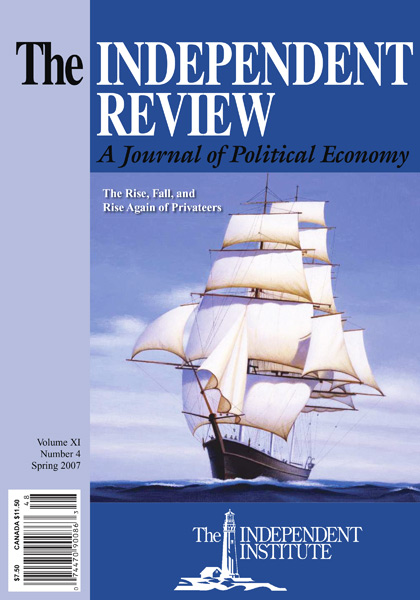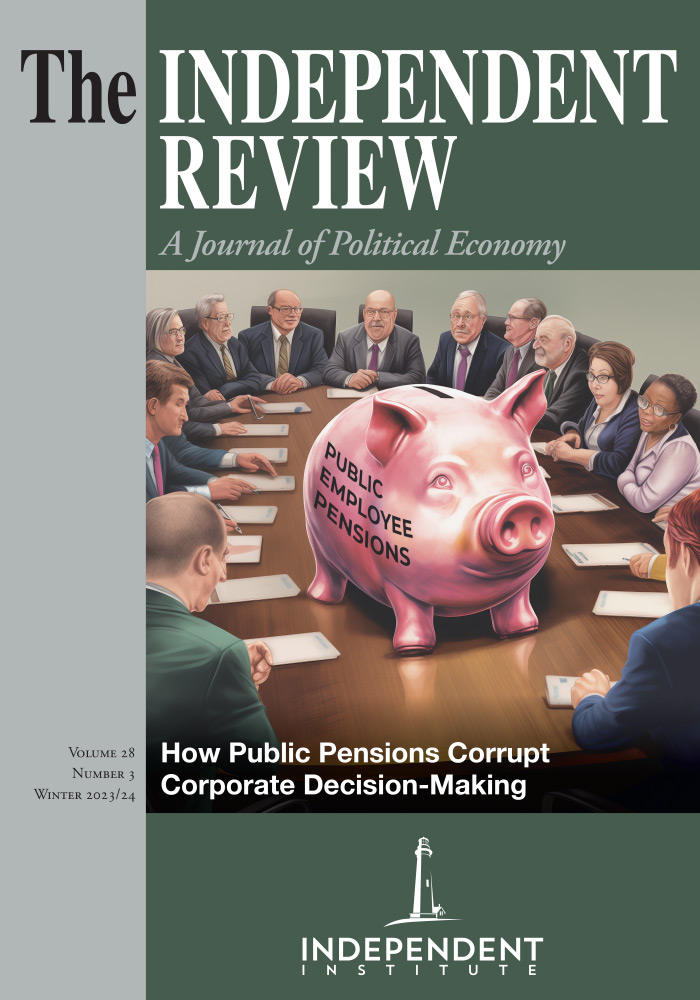Conservative heirs to the agrarian romantics, G. K. Chesterton and Hillaire Belloc believed the Industrial Revolution had made the English working class less secure because whereas small property holders had been able to live off the land during hard times, wage earners were dependent on their employers. Chesterton and Belloc advocated land reform and other “distributist” policies to resolve this predicament, but their proposals would have required state action on a scale that would have violated their own anti-socialist principles.
Walter E. Block is Harold E. Wirth Eminent Scholar Chair and Professor of Economics at Loyola University, New Orleans.
Marcus Epstein is executive director of The American Cause.
Thomas E. Woods, Jr. is Senior Fellow in American history at the Ludwig von Mises Institute.
EconomistsEconomyGovernment and PoliticsLaw and LibertyPhilosophy and ReligionPolitical HistoryPolitical Theory
| Other Independent Review articles by Walter E. Block | ||
| Spring 2023 | Defending Liberty: Essays in Honor of David Gordon | |
| Spring 2022 | The Ethics of Liberty | |
| Winter 2018/19 | Crony Capitalism versus Pure Capitalism | |
| [View All (4)] | ||
| Other Independent Review articles by Thomas E. Woods, Jr. | |
| Spring 2007 | The Victory of Reason: How Christianity Led to Freedom, Capitalism, and Western Success |
| Spring 2005 | The Christian Realists: Reassessing the Contributions of Niebuhr and His Contemporaries |









